【祈祷和平】A war diary from Lviv – photo essay by Alessio Mamo 移花接木2022-03-25 14:57:51
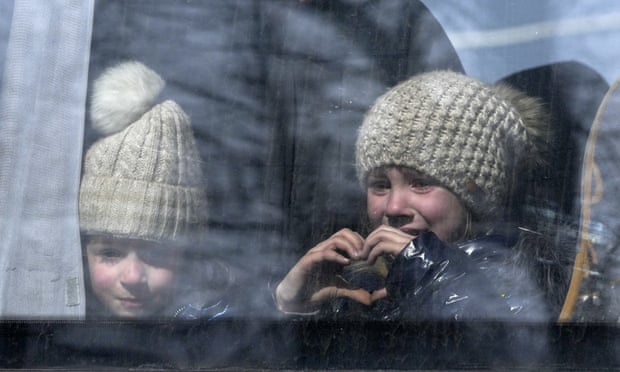
A girl makes a heart shape with her hands as civilians are evacuated from Mariupol under the control of Russian military and pro-Russian separatists. Photograph: Anadolu Agency/Getty Images
Ukraine: a war diary from Lviv – photo essay
Photojournalist Alessio Mamo talks about his experience covering the conflict from Lviv in Western Ukraine, 50 miles from the border with Poland, and finds echoes of the conflicts in Syria and Iraq that he has covered. by Alessio Mamo
For the inhabitants of Lviv, being woken up in the middle of the night by the air raid siren is a warning that, despite being untouched so far by the bombings, the time may also come for them.
In over 10 years of working in countries in conflict this was also a first for me. There are no air raid sirens announcing terrorist attacks in Kabul, just as there are none when Turkish drones bomb the population in north-eastern Syria. But, if there is one thing that makes this war the same as any other in any area of the planet, it is the way it changes people’s faces.
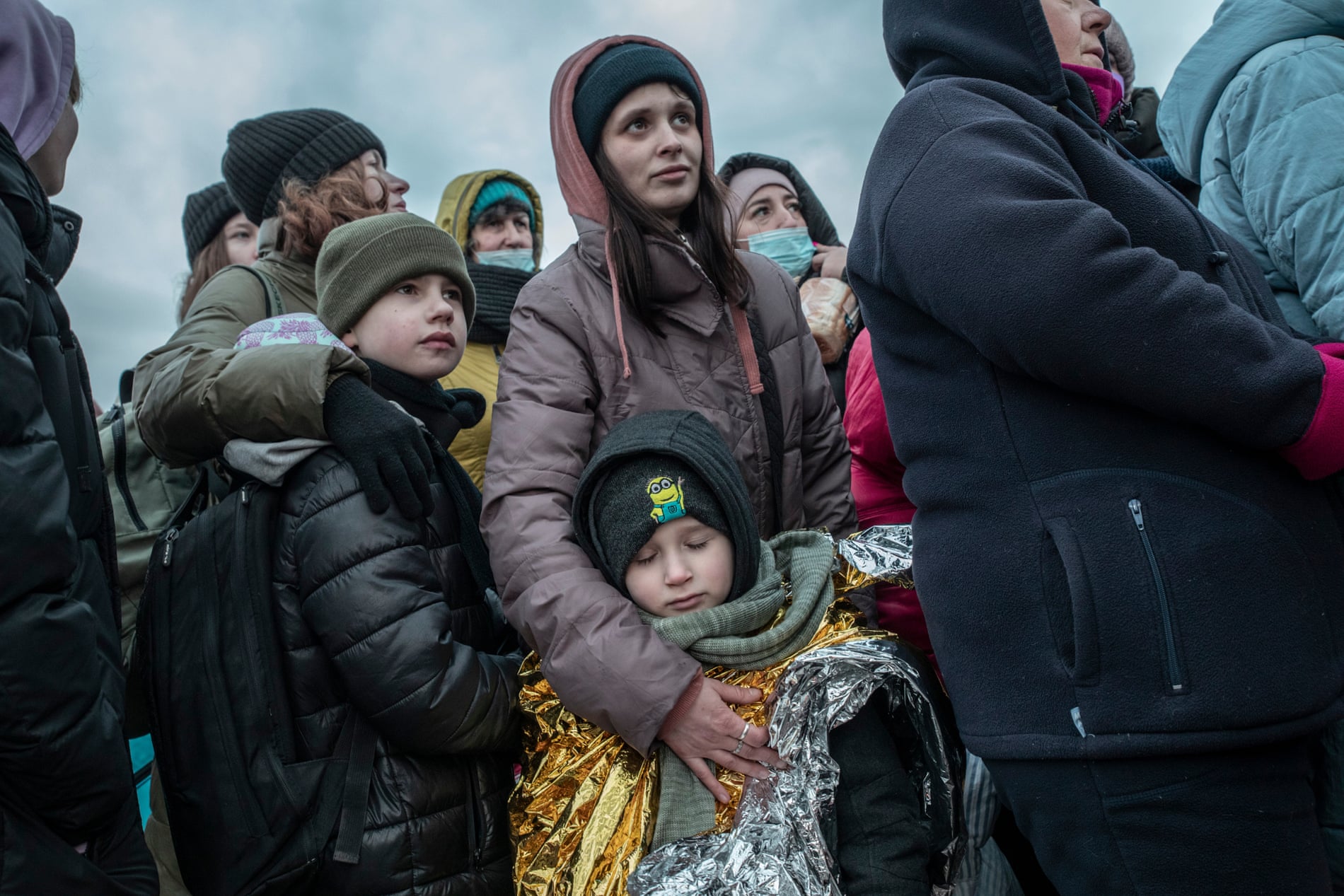
Thousands of Ukrainian refugees, mostly women and children, arrived in Medyka, the main border crossing between Poland and Ukraine. Photograph: Alessio Mamo/The Guardian
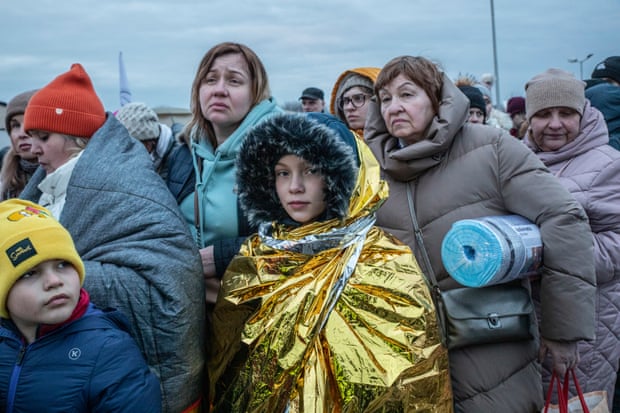
Thousands of Ukrainian refugees, mostly women and children, arrived in Medyka the crossing border between Poland from Ukraine.
The confused, terrified, dismayed looks of the children of Kharkiv, Kyiv and Mariupol are the same as those of the children of Raqqa, Mosul and Palestine. They are those of the children who have just landed in Sicily, after a night in a rubber dinghy, in the midst of the waves of the Mediterranean, surprised to have survived.
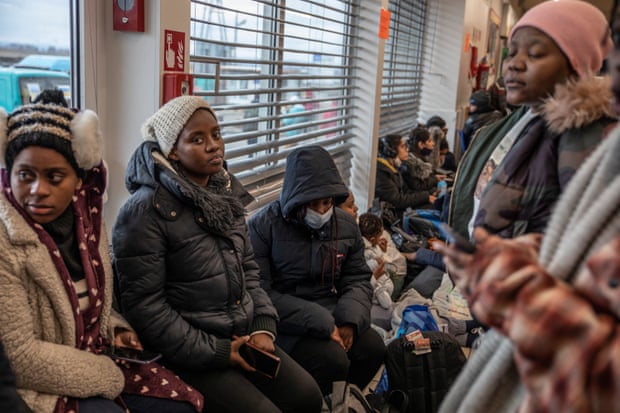
Group of women mostly from South Africa and Zambia inside a supermarket at Medyka border crossings. They were studying Medicine at the University of Kyiv.
The cry of pain of Ukrainian mothers who lost their children in the war is the same as that of the Yazidi mothers who found the bodies of their loved ones buried in mass graves in Iraq. It is they, who have no power over war, who are the first to pay for its atrocities and consequences.
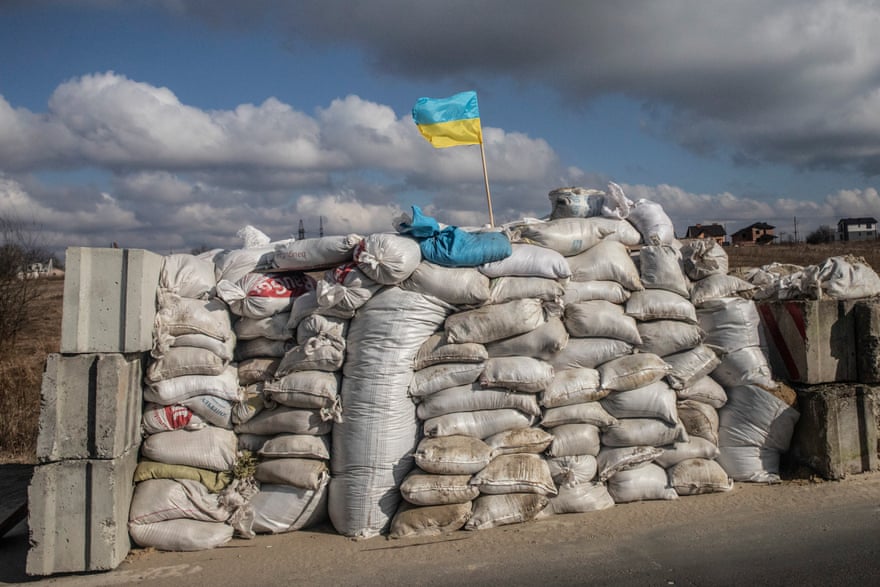
Immediately after the Russian invasion of Ukraine began, I went with Guardian correspondent Lorenzo Tondo to the Polish cities on the border with Ukraine, where tens of thousands of refugees fleeing the war were beginning to arrive. It was enough to go to Przemy?l train station to understand the proportions of a conflict that, in just a few weeks, has caused the exodus of more than 3 million people, the fastest moving refugee crisis since the end of the second world war.
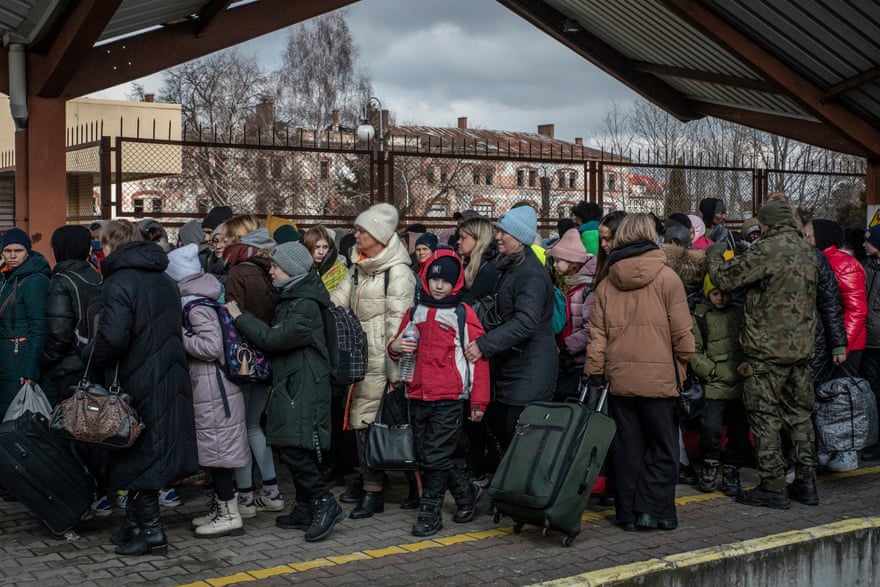
Hundreds of Ukrainians arrived at the Przemy?l train station after the journey from Lviv.

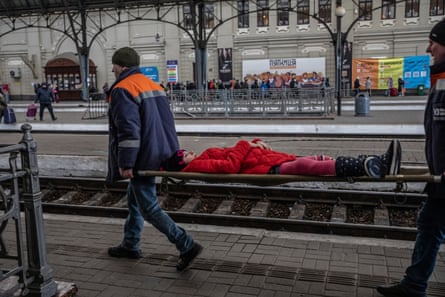
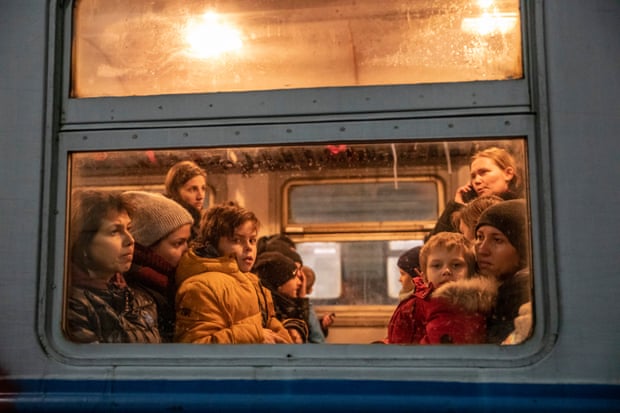
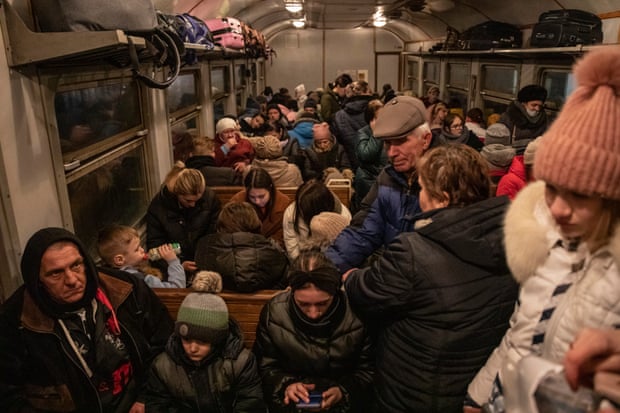
Families with children inside the train to Przemy?l in Poland.
In the eyes of each of the passengers who get off the buses and trains coming from Ukraine or walk to Medyka, Poland’s main crossing point, you can read the silent despair on the faces of the mothers, grandmothers and daughters who have seen their homes disintegrate under the blows of Russian forces. It is the silence of those who have lost everything. The eyes of those who do not know if they will see their loved ones or their city again, or even if they will ever be able to return to their country. Refugees, fleeing the war, are mostly women, after Ukrainian authorities introduced martial law, banning men aged 18-60 from leaving the country.
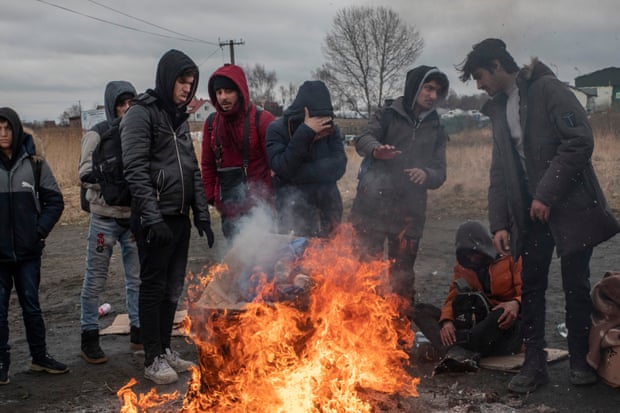
Migrants that have just crossed the border between Poland and Ukraine at Medyka
In early March, alongside Tondo, I entered the city of Lviv in Ukraine, 50 miles from the border with Poland and a safe haven for hundreds of thousands of internally displaced Ukrainians. The 700,000 inhabitants of this magnificent Unesco world heritage site knew that they could be the next to leave home.
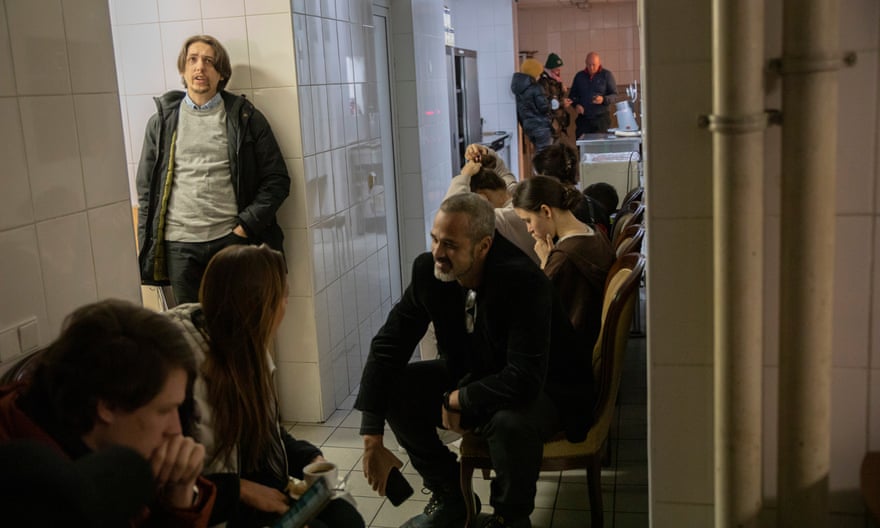
Ukrainian civilians take shelter in a basement of a hotel in Lviv? after air raid sirens.
I am not on the Kyiv frontline, or beneath the Kharkiv bombings, where dozens of my colleagues document crimes against civilians. Since the beginning of the conflict, about five journalists and video makers have died. Yet, despite this, the war has also arrived here, in Lviv, where thousands of refugees are seeking refuge, where people run for cover in the city’s bomb shelters, during air raids, and where local authorities have ordered dozens of statues to be wrapped in padding to protect them from Russian attacks. The war has come here too, with the roar of explosions in the distance that hit the military base of Yavoriv, close to Lviv and the Polish border, killing at least 35 people and injuring 134 more.
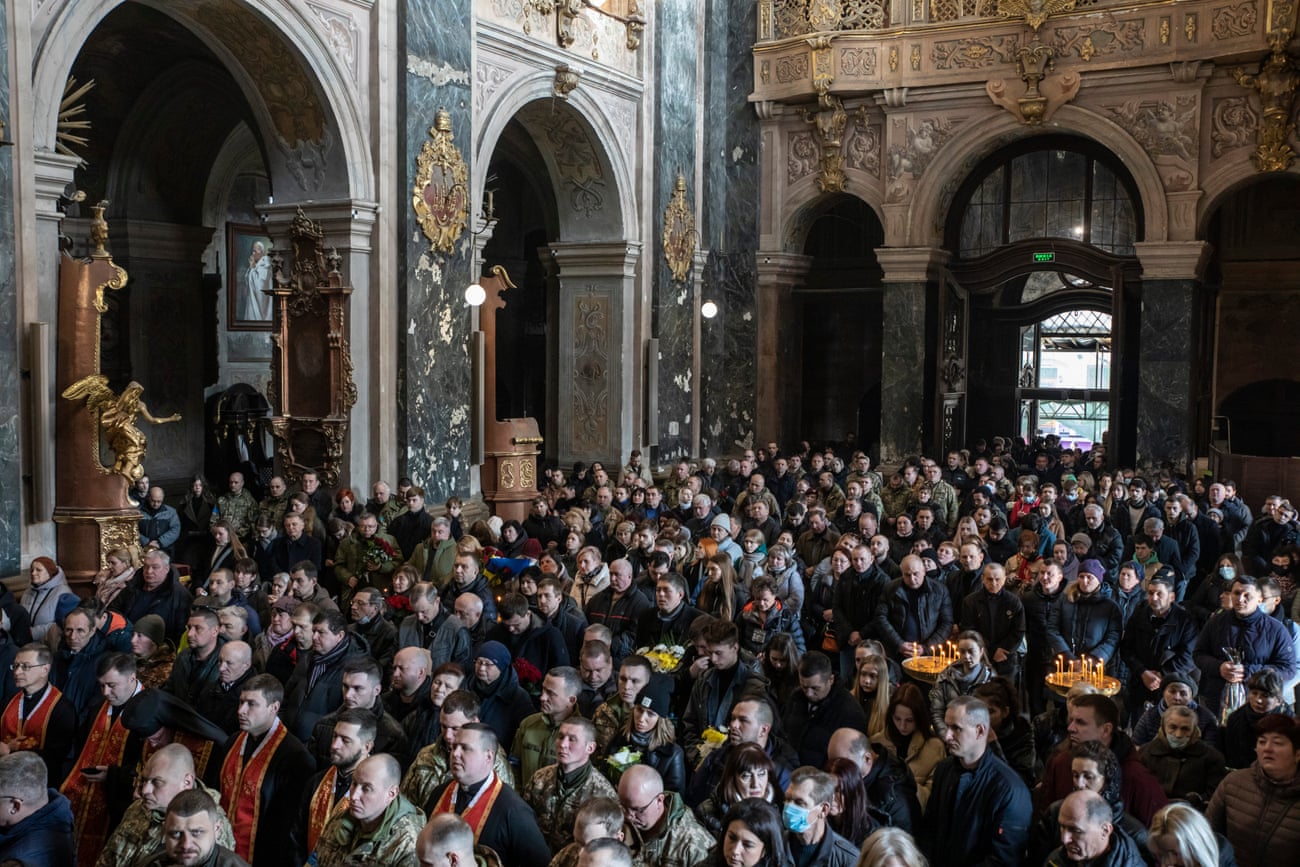
Funeral at the Saints Peter and Paul Garrison Church of four Ukrainian men, killed in a Russian military attack in Yavoriv
On Tuesday 15 March, I attended a funeral in Lviv of four Ukrainian men, killed in the attack. Hundreds of people attended the ceremony at the Saints Peter and Paul Garrison Church.
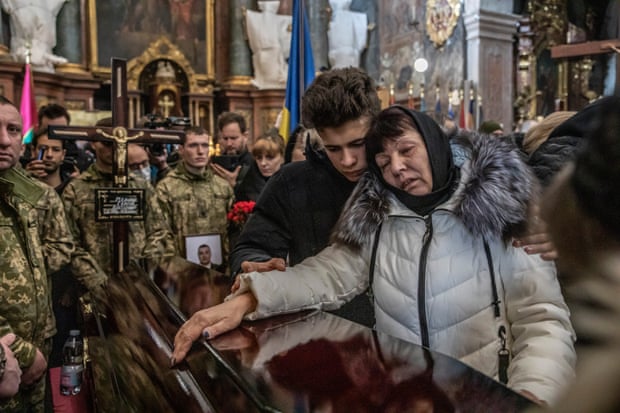
The four men were of different ages. The youngest was born in 1991, the oldest in 1966
Seeing Ukrainian mothers hugging their children’s coffins took me back to Qamishli, in north-eastern Syria, where the mothers of the Kurdish forces’ soldiers mourned their children, killed in Turkish attacks. Attending a funeral in a country at war is not easy, documenting the suffering, aware of invading the privacy of these people. But the work of a photojournalist is a continuous internal struggle between emotions and the duty to document. A step back in respect of pain, a step forward so that pain is also felt by the rest of the world.
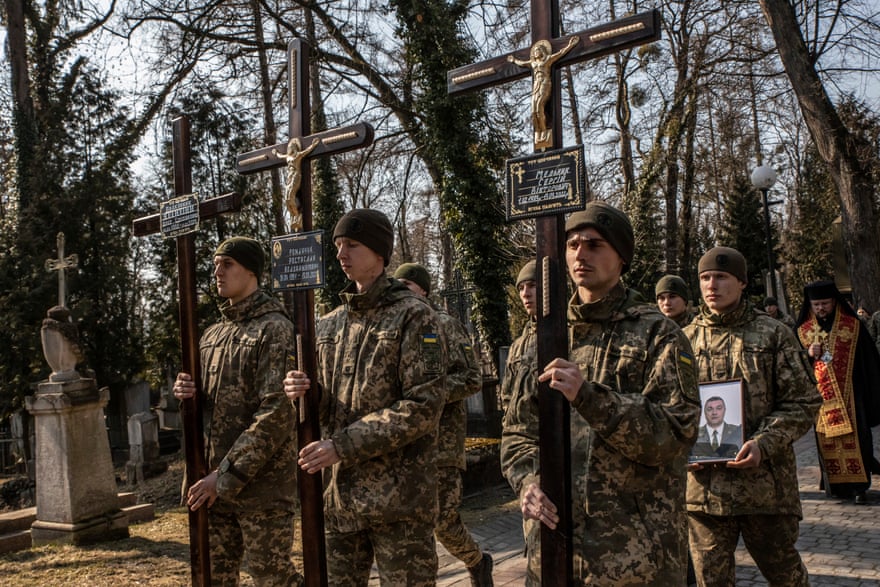
The priest had to interrupt the ceremony due to an air raid siren. The pastor had to stop family members carrying the coffins outside the church. The four men were of different ages. The youngest one was born in 1991, the oldest in 1966. Once the air raid siren had stopped, the priest resumed the ceremony and the coffins were carried outside to be buried.
As I watched the soldiers and friends of the victims holding large crosses in front of their tombstones, I read the despair and terror of those who are aware that, one day, it could also be their turn. They are very young. At their age, they should be planning for their futures, having fun, travelling and falling in love. Instead, here they are, forced to take up arms in a war they have not started and whose fate is far from defined.